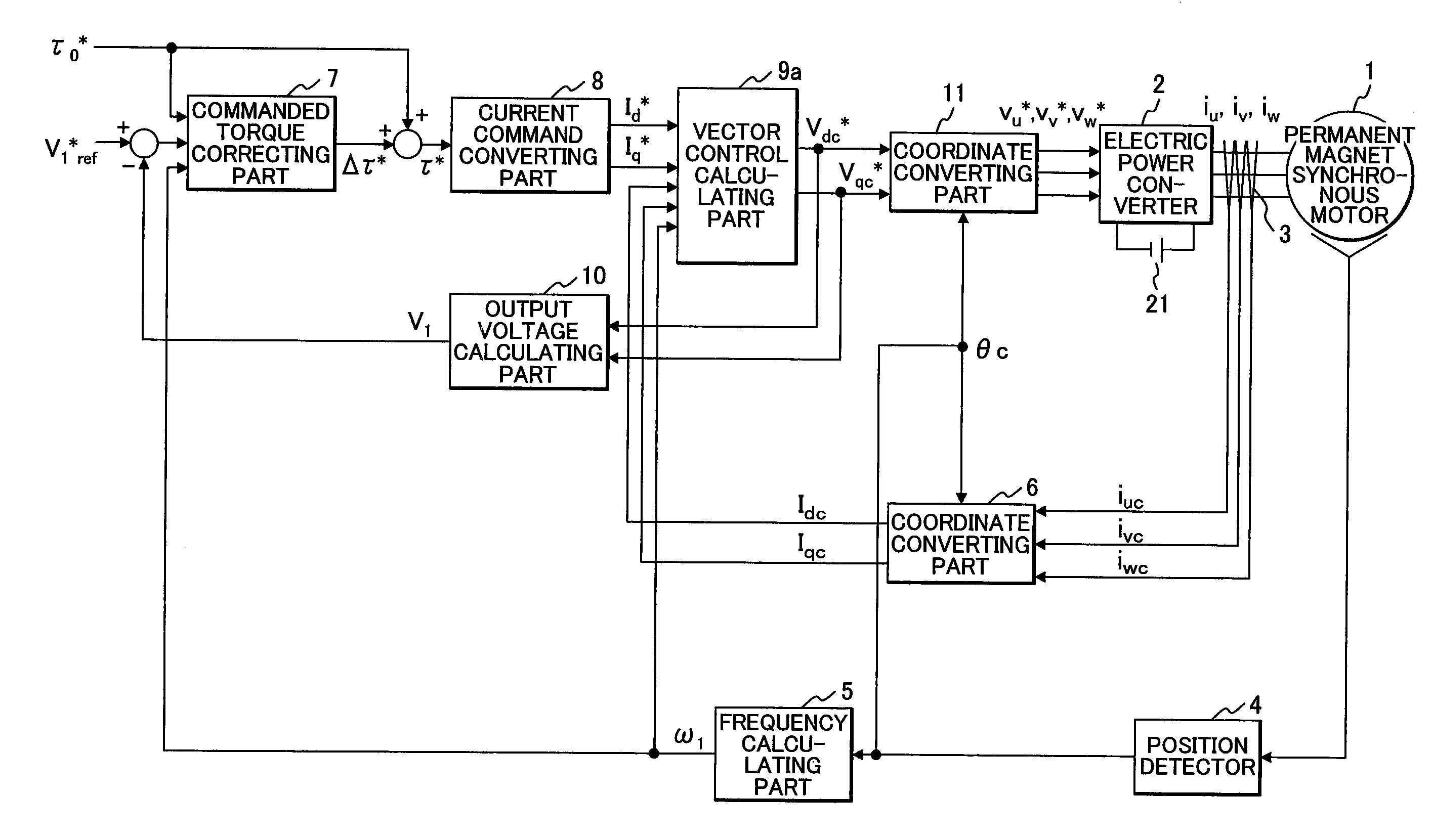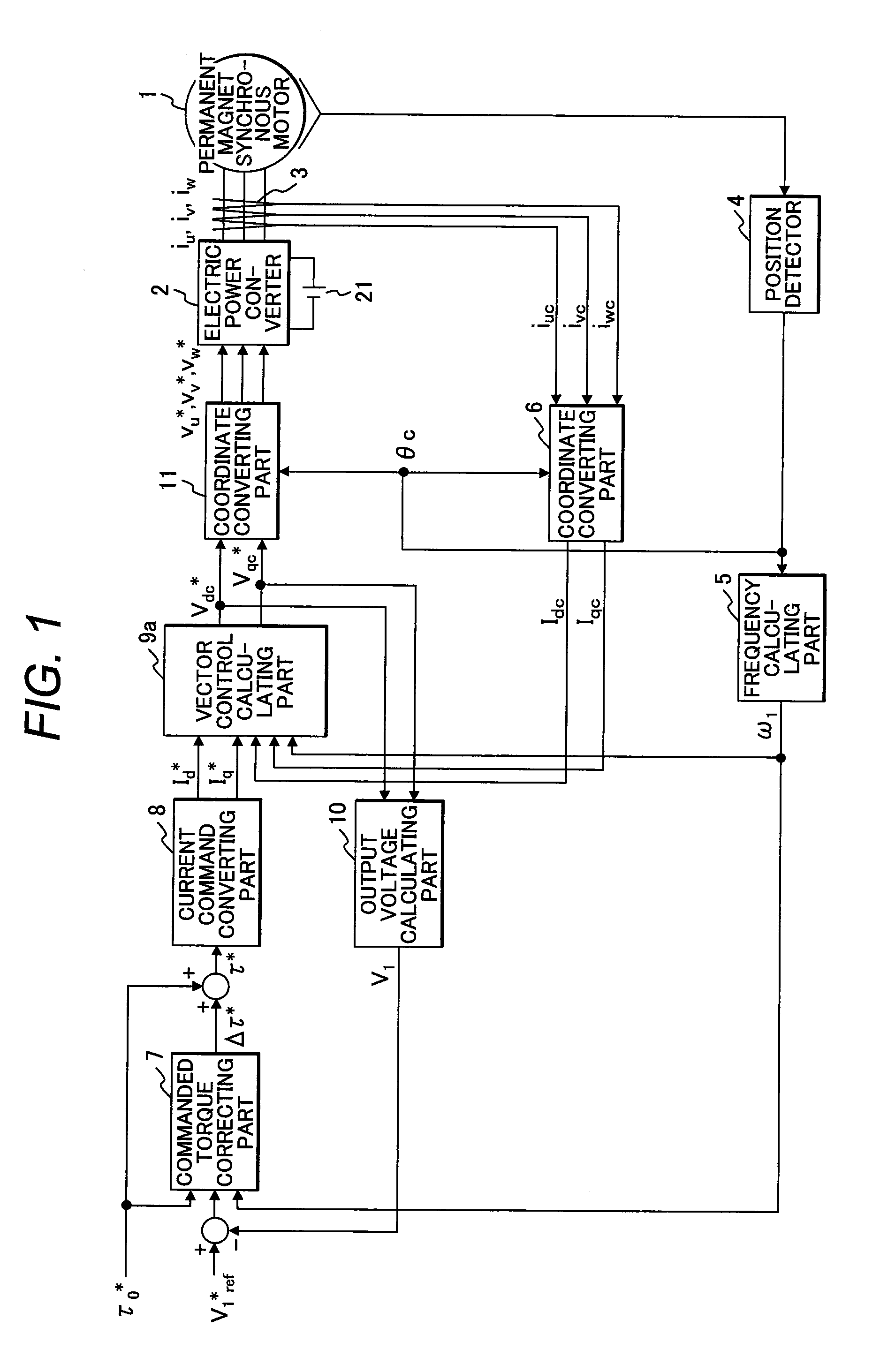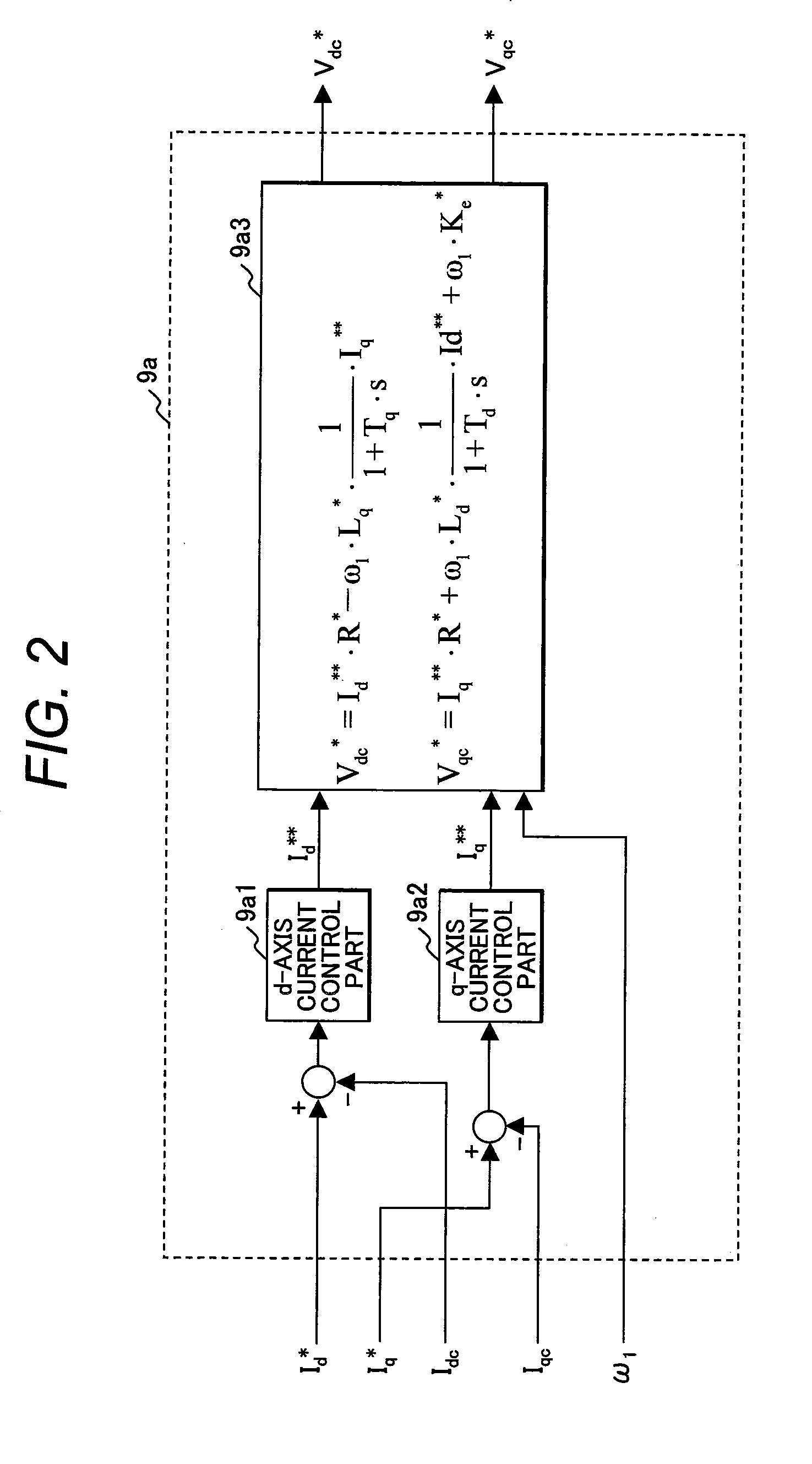Torque Controller for Permanent Magnet Synchronous Motor
a synchronous motor and torque controller technology, applied in the direction of motor/generator/converter stopper, dynamo-electric converter control, dynamo-electric gear control, etc., can solve the problem of large ratio of dc voltage drop due to motor resistance and harness resistance (several tens of volts), and the output voltage of the electric power converter may be limited (saturated). problem, to achieve the effect of high torque control
- Summary
- Abstract
- Description
- Claims
- Application Information
AI Technical Summary
Benefits of technology
Problems solved by technology
Method used
Image
Examples
first embodiment
[0026]FIG. 1 is an exemplary block diagram showing the structure of a torque controller for a permanent magnet synchronous motor in a first embodiment of the present invention.
[0027]The main circuit in FIG. 1 includes a permanent magnet synchronous motor 1, an electric power converter 2 that outputs voltages in proportion to commanded three-phase voltages Vu*, Vv*, and Vw*, and a DC power supply 21 that supplies a DC voltage. Sensors included in the main circuit are a current detector 3 that detects three-phase AC currents iu, iv, and iw and a position sensor 4 that detects a position θ of the permanent magnet synchronous motor 1 by using a resolver or an encoder.
[0028]In the functional section, which is a control circuit, a frequency calculating part 5 generates a calculated frequency ω1 from a detected positional value θc; a coordinate converting part 6 outputs detected currents Idc and Iqc for the d-axis and q-axis from detected values iuc, ivc, and iwc of the three-phase AC curr...
second embodiment
[0066]FIG. 8 is a block diagram showing the structure of a torque controller for a permanent magnet synchronous motor in a second embodiment of the present invention.
[0067]This embodiment is applied to a torque controller from which a position sensor such a resolver or an encoder is eliminated. In FIG. 8, the same components as in FIG. 1 are denoted by the same reference characters. An axial error calculating part 12 infers an axial error Δθc (=θc′−θ), which is a difference between an inferred phase value θc′ and motor phase value θ by using the d-axis commanded voltage Vdc*, the q-axis commanded voltage Vqc*, the detected currents Idc and Iqc, an inferred frequency ω1′, and the motor constants, as in equation (14).
[Equation14]Δθc=tan-1[Vdc*-R*·Idc+ω1′·Lq*·IqcVqc*-R*·Iqc-ω1′·Lq*·Idc](14)
[0068]A frequency inferring part 13 calculates the inferred frequency ω1′ so that the calculated axial error Δθc becomes 0. A phase calculating part 14 integrates the inferred frequency ωc′ to calcul...
third embodiment
[0071]Although the expensive current detector 3 is used in the first and second embodiments to detect the three-phase AC currents iu, iv, and iw, the present invention can also be applied to a torque controller that detects currents in an inexpensive manner.
[0072]FIG. 9 shows the structure of a torque controller in a permanent magnet synchronous motor according to a third embodiment of the present invention, the torque controller detecting currents as described above. In FIG. 9, the same components as in FIG. 8 are denoted by the same reference characters. A current inferring part 15 infers the three-phase currents iu, iv, and iw, which flow in the permanent magnet synchronous motor 1, from a DC current IDC flowing in the input bus of the electric power converter 2.
[0073]The coordinate converting part 6 uses inferred currents iû, iv̂, and iŵ to calculate the detected currents Idc and Iqc for the d-axis and q-axis.
[0074]Even in an inexpensive control system of this type, in which a...
PUM
 Login to View More
Login to View More Abstract
Description
Claims
Application Information
 Login to View More
Login to View More - R&D
- Intellectual Property
- Life Sciences
- Materials
- Tech Scout
- Unparalleled Data Quality
- Higher Quality Content
- 60% Fewer Hallucinations
Browse by: Latest US Patents, China's latest patents, Technical Efficacy Thesaurus, Application Domain, Technology Topic, Popular Technical Reports.
© 2025 PatSnap. All rights reserved.Legal|Privacy policy|Modern Slavery Act Transparency Statement|Sitemap|About US| Contact US: help@patsnap.com



